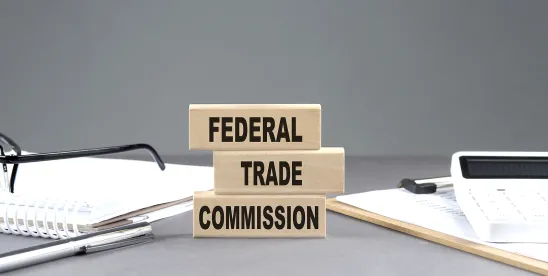Earlier today, July 3, 2024, the United States District Court for the Northern District of Texas issued a preliminary injunction staying enforcement of the Federal Trade Commission’s (“FTC”) proposed final rule (“Final Rule”) banning most noncompete agreements in the United States. However, the court’s preliminary injunction is limited in scope—it stays the Final Rule’s effective date and enjoins the FTC from enforcing it only against the plaintiffs before the Court. For all other employers, the Final Rule will still take effect on September 4, 2024 unless halted by pending legal challenges (or others yet to be filed).
Procedural History
On April 23, 2024, hours after the FTC issued the Final Rule, Ryan LLC, a global tax services firm based in Dallas, Texas, filed suit in Ryan LLC v. Federal Trade Commission, No. 3:24-cv-00986-E (N.D. Tex. Apr. 23, 2024) seeking a preliminary injunction to stay enforcement of the Final Rule. The next day, the U.S. Chamber of Commerce, Business Roundtable, Texas Association of Business, and Longview Chamber of Commerce filed a lawsuit in the Eastern District of Texas challenging the Final Rule on similar grounds. The Chamber of Commerce lawsuit was halted in favor of the Ryan action, which was filed first. On May 9, 2024, the Chamber of Commerce and affiliated groups intervened and joined as plaintiffs in Ryan (together with Ryan LLC, the “Ryan Plaintiffs”). Another lawsuit challenging the Final Rule was filed by ATS Tree Services, LLC in the Eastern District of Pennsylvania, which is still underway. The court in that action is expected to reach a decision on whether to grant injunctive relief on July 23, 2024.
The Court’s Decision
The Northern District of Texas granted the Ryan Plaintiffs’ request for a preliminary injunction staying the effective date of the Final Rule. Notably, in holding that the Ryan Plaintiffs had demonstrated a likelihood of success on the merits, the court concurred with their arguments that the Final Rule exceeded the FTC’s statutory authority under the FTC Act and was arbitrary and capricious under the Administrative Procedures Act. The court found that the FTC lacks authority under Section 6(g) of the FTC Act (upon which it relies) to issue substantive rules, as opposed to merely procedural ones. The court also found a substantial likelihood that the Final Rule would be considered arbitrary and capricious, pointing to its “one-size-fits-all approach with no end date,” the FTC’s reliance on state-specific studies as justification for a nationwide ban, and the FTC’s failure to consider less disruptive alternatives.
Significantly, the court declined to issue a nationwide injunction. Citing to 5th Circuit decisions, the court noted that while a nationwide injunction was not beyond its powers “in appropriate circumstances,” recent precedents supported limiting injunctive relief to the plaintiffs before the court. The court also found that the Ryan Plaintiffs had not briefed why a nationwide injunction was necessary to provide them with complete relief, nor sufficiently demonstrated associational standing, which would permit relief to be granted to their member entities. Accordingly, the court declined to stay enforcement of the Final Rule beyond the Ryan Plaintiffs themselves (Ryan LLC; U.S. Chamber of Commerce; Business Roundtable; Texas Association of Business; and Longview Chamber of Commerce).
What Happens Next?
The Northern District of Texas has preliminarily stayed the Final Rule and stated it intends to rule on the ultimate merits of the action on or before August 30, 2024. However, either party may appeal the court’s decision to the United States Court of Appeals for the Fifth Circuit within 60 days. If the Fifth Circuit affirms the district court’s ruling, the FTC may choose to modify and re-issue the Final Rule. The case could also ascend to the United States Supreme Court.
While the Ryan court declined to issue a nationwide injunction, the Eastern District of Pennsylvania in ATS Tree Services, LLC still has opportunity to do so in its forthcoming decision on July 23, 2024.
Key Considerations for Employers
In light of the limited scope of the court’s decision today, employers should be aware that unless blocked by subsequent legal challenges, the Final Rule will still take effect on September 4, 2024. Regardless of the fate of the Final Rule, employers should continue to be mindful of the growing challenges and risks surrounding the use of restrictive covenants, as highlighted by recent actions by state legislatures and other regulatory agencies. While certain states like California have historically banned noncompete agreements (with very limited exceptions), many others, including Colorado, Illinois, Maryland, and Massachusetts, have recently passed legislation restricting the use of non-competition agreements, such as by prohibiting their use with respect to low-wage employees and/or imposing additional notice or consideration requirements.
While the legal challenges to the Final Rule continue to unfold, employers should evaluate their non-compete agreements for compliance with the Final Rule and state laws and consider possible alternatives. With respect to compliance with the Final Rule, employers should focus on the following:
- The Final Rule does not prohibit non-competes during employment, nor does it expressly ban confidentiality, non-disparagement, or non-solicitation agreements. It does, however, prohibit any provisions that “penalize a worker for or functions to prevent a worker” from seeking work elsewhere. While the scope of this prohibition remains uncertain, the FTC has suggested that “penalize” includes, among other things, forfeiture for competition provisions which impose adverse financial consequences on former employees that seek or accept competing work after separation. However, a garden leave arrangement may be permissible, as the worker would continue to be employed. Similarly, an agreement providing for repayment of bonus compensation may be permitted so long as it does not impose post-employment restrictions on the worker. However, employers should continue to ensure that they comply with state-specific requirements for any such agreements.
- While employers would be prohibited from entering into new non-competes should the Final Rule take effect, pre-existing non-competes with “senior executives” would remain enforceable. Employers may still consider the use of non-compete agreements with employees qualifying as “senior executives” under the Final Rule, which requires that they earn at least $151,164 in total annual compensation and work in a “policy-making position.” For employees who do not qualify as “senior executives,” the Final Rule would require that they be provided with notices informing them that their non-competes will not be enforced and offers model language providing a safe harbor for compliance with this requirement.







 />i
/>i
